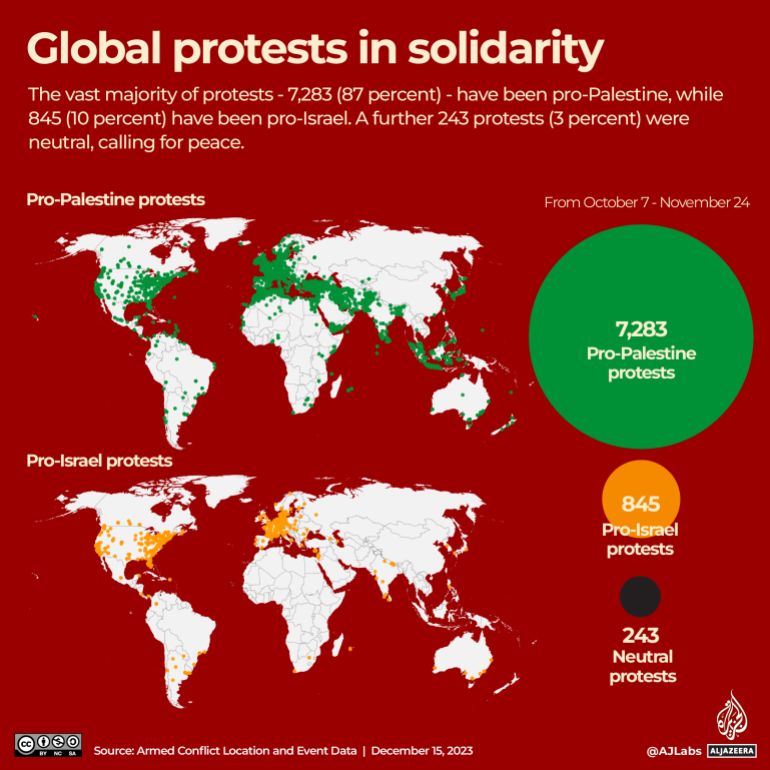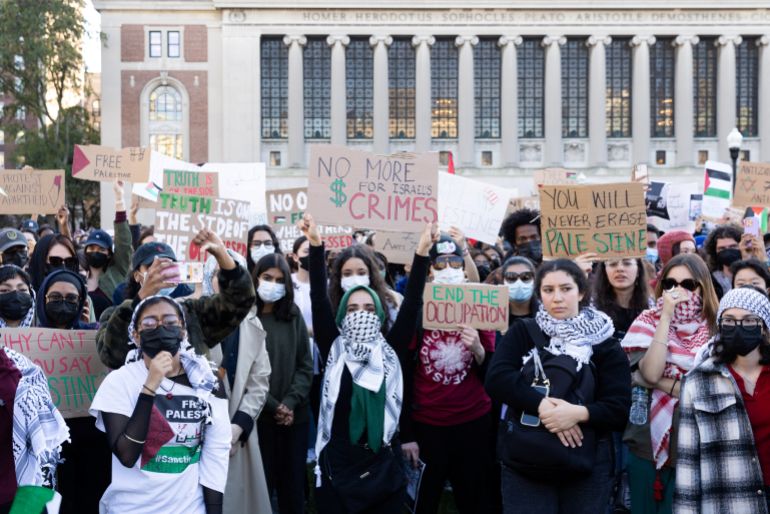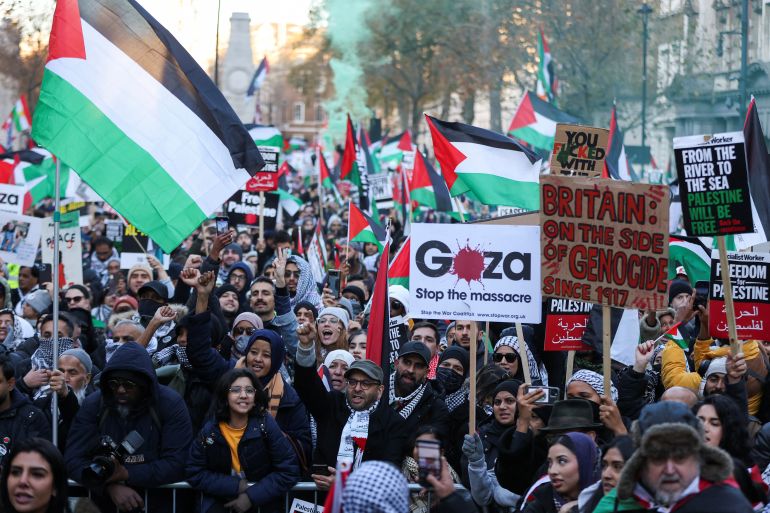Read More:
Indonesians boycott McDonald’s, Starbucks over support for Israel
‘Boycott Israel’ breathes new life into 100-year-old Egyptian soda brand
Zara pulls controversial ad from website after Gaza boycott calls
ACTIVISM, 25 Dec 2023
Alia Chughtai, Marium Ali and Delaney Nolan | Al Jazeera - TRANSCEND Media Service
Al Jazeera takes a look at the movements against Israel and illegal settlements in Palestine.
According to the Armed Conflict Location & Events Data Project, a nongovernmental organisation specialising in conflict data collection, from October 7 to November 24, there were at least 7,283 pro-Palestine protests that took place in more than 118 countries and territories.

Many more have chosen to express their condemnation using their purchasing power, opting to boycott products and services that support Israel, in turn fueling the Boycott, Divestment and Sanctions (BDS) movement that was set up in 2005 by a coalition of Palestinian civil society groups.
In the United States, students at several universities, including Columbia University in New York City, have said their attempts to speak out against Israel’s bombardment of Gaza have met intimidation and censorship.

“I think being at a school at Columbia that has so much global power, I felt the need to act. And also, I just think that this issue is one that connects so many other ones where we see police violence, settler colonialism, these issues that are so important in America as well,” said Daria Mateescu, a law student at Columbia University.
Mateescu, 25, is a first-generation Romanian American who leads the Columbia University Apartheid Divest student group, a coalition of about 80 student organisations that see Palestine as the vanguard for collective liberation of the marginalised.
She said she and her peers feel the university is not listening to student voices calling for divestment from Columbia’s Tel Aviv campus, which Palestinians and Arabs cannot attend; reaffirmation of free speech on campus; and reinstatement of two student groups – Students for Justice in Palestine and Jewish Voice for Peace (JVP) – that were suspended by the university in November.
Mateescu said that in addition to protests on and off campus, members of the community are making consumer choices tied to what they believe.
“People are really respecting the targeted boycotts for places like McDonald’s or Starbucks … ‘We don’t buy from these places.’ That’s incredible to hear,” she told Al Jazeera.
Mateescu said there’s a Colombia-specific boycott list that’s being shared on social media to make local consumer choices.
Across the Atlantic in the United Kingdom, a group of students at the University of York have also been holding events to raise awareness about the events in Palestine.
The students requested their identities be concealed due to the backlash for publicly supporting Palestine.
“I do find that a lot of people don’t want to take a stance on it and are sort of sitting in the middle and a lot of people that I know don’t really understand what’s going on very much because there’s quite a lot of misinformation. I would say it’s your duty to uplift voices that aren’t necessarily being heard,” one of the society members said.
“I think for me to take the small action of not buying a coffee at a certain chain, it’s very easy to take small actions to make sure that there’s less money being directed towards violence,” she said, explaining the steps she is taking.
Another member said they are focused on educating people who may not be equipped with information to form an opinion on the conflict and the conditions of the Palestinian people.

DISCLAIMER: The statements, views and opinions expressed in pieces republished here are solely those of the authors and do not necessarily represent those of TMS. In accordance with title 17 U.S.C. section 107, this material is distributed without profit to those who have expressed a prior interest in receiving the included information for research and educational purposes. TMS has no affiliation whatsoever with the originator of this article nor is TMS endorsed or sponsored by the originator. “GO TO ORIGINAL” links are provided as a convenience to our readers and allow for verification of authenticity. However, as originating pages are often updated by their originating host sites, the versions posted may not match the versions our readers view when clicking the “GO TO ORIGINAL” links. This site contains copyrighted material the use of which has not always been specifically authorized by the copyright owner. We are making such material available in our efforts to advance understanding of environmental, political, human rights, economic, democracy, scientific, and social justice issues, etc. We believe this constitutes a ‘fair use’ of any such copyrighted material as provided for in section 107 of the US Copyright Law. In accordance with Title 17 U.S.C. Section 107, the material on this site is distributed without profit to those who have expressed a prior interest in receiving the included information for research and educational purposes. For more information go to: http://www.law.cornell.edu/uscode/17/107.shtml. If you wish to use copyrighted material from this site for purposes of your own that go beyond ‘fair use’, you must obtain permission from the copyright owner.